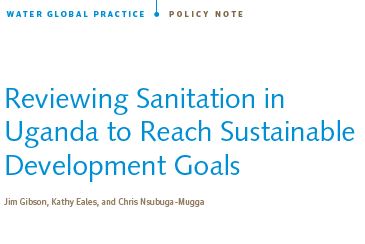Reviewing Sanitation in Uganda to Reach Sustainable Development Goals
Good sanitation matters for many reasons, but particularly for human dignity, public health, and environmental protection, especially water. Poor sanitation entrenches the cycle of poverty and disease (for instance, cholera, typhoid, stunting, lowered immunity to malaria, tuberculosis and human immunodeficiency virus [HIV] arising from worm infestations), slows development, entrenches slums, as well as makes cities less attractive places to work, live, and invest in. To date, the GoU has given strong emphasis to eradicating open defecation, and to encouraging people to invest in safe containment systems. Grant funding, to local governments to support community-led total sanitation (CLTS) and home improvement campaigns, is spurring sanitation improvement on a significant scale, attention to safe management of wastes beyond the on-site facilities of individual users. The SDGs shift the sanitation sector’s goal posts significantly. Sanitation improvement in Uganda is being supported by an extremely wide range of initiatives. There is a clear need to make significant additional investments across the service delivery chain in all villages, towns, and cities.
